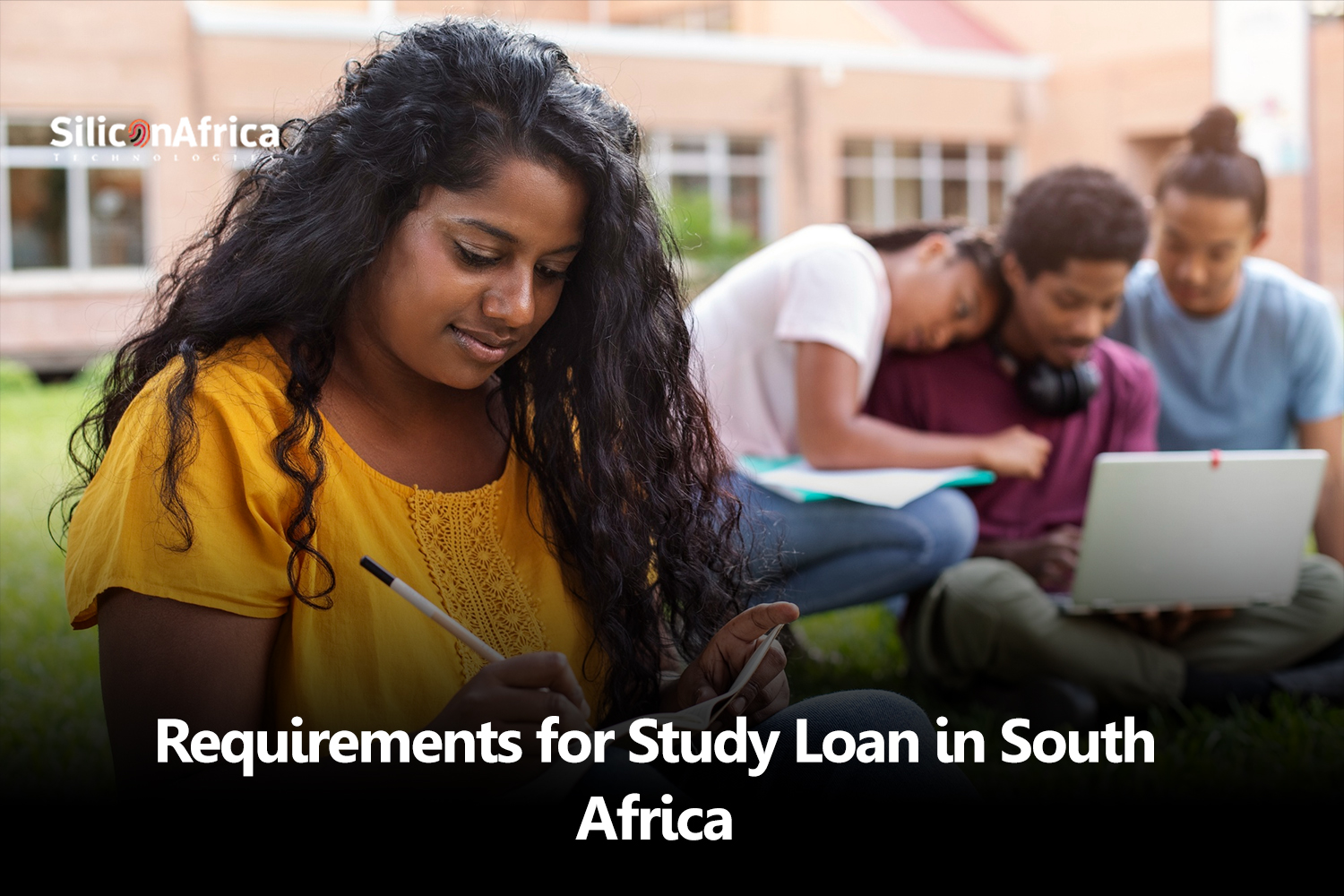Physical Address
60 Ekwema Cres, Layout 460281, Imo
Physical Address
60 Ekwema Cres, Layout 460281, Imo

Education is an excellent tool, but it may be expensive. If you are a South African scholar looking to further your education, a study loan can help you bridge the financial gap.
However, before you begin applying for a study loan, you need to become aware of the prerequisites. Understanding the study loan requirements in South Africa is critical for receiving the funding you need to achieve your educational ambitions.
Navigating these study loan requirements can be difficult, but with good help and research, you can improve your chances of obtaining the financial assistance needed to pursue your education.
In this article, we’ll walk you through the necessary processes to qualify for a study loan in South Africa. We’ll break down the everyday needs requested by creditors, ranging from citizenship to educational information.
So, keep reading and get ready to pursue your educational goals!

Study loans, sometimes known as student loans, are a sort of loan developed specifically to help students gain access to a better education.
This could include faculties, universities, vocational schools, or specialized postsecondary institutions. That money might be used to pay for things like training, books, tuition, and even living expenses.
Here are some highlights about study loans:
Study loans may be used to help finance your education, but it is vital to borrow carefully. Make sure you comprehend the loan’s terms, which include interest rates, repayment terms, and any really good expenses. Simply borrow what you need and plan to repay your debt after graduation.
Read Also: DSCR Loan in South Africa: how to Apply
There is no one-size-fits-all solution to the cost of study loan payments in South Africa. The maximum loan amount varies depending on which lender you choose; however, it can range from R15,000 to R500,000 (about $1,000 to $34,000). The specific charges covered by the loan can vary depending on the lender and your situation.
Here’s a breakdown to help you grasp the concept:
Loan amounts can vary greatly, but some trendy levels include:
Covered charges may consist of:
You can find a study loan that meets your educational goals and financial position by taking into account the loan amount, covered expenses, and possibilities from various creditors.
There are numerous financial institutions in South Africa, each with its own set of conditions for your loan application. However, there are several mandatory standards for every establishment:
To apply for a study loan in South Africa, you need to provide the following documents:
When you visit the monetary group, you may turn in the majority of these papers, fill out the necessary paperwork, and give the money you require to cover your studies.
When filling out the necessary documentation, it is critical to remember the total number of names and the level of your degrees. The amount that the monetary group will offer you may depend on your figure/parents’ credit score records and income category.
Also Read – Bursary vs Student Loan: How Does a Bursary Differ from a Student Loan?
Various factors could influence your eligibility for a study loan in South Africa, and understanding them will help you build a great application. Here’s a summary of common reasons for disqualification.
Loan carriers promote responsible lending and must ensure that you succeed. This method establishes a clear teaching benchmark. This will be a minimum final grade from high school or meeting the entrance requirements of your desired program. To be eligible for financing, ensure that your chosen program is registered with the Department of Higher Education and Training.
Lenders assess your financial situation to see whether you truly need the loan and can afford the repayments once it begins. This could include considering your family income, previous monetary obligations (such as any bursaries or scholarships you get), and your sponsor’s earnings (if applicable), if you rely on someone else’s financial support.
A very good credit score history, like that of maximum loans, can help you get approved. If you have a history of defaults or late payments on previous loans (along with study loans from previous studies), it will raise red flags for the lender.
Applications often include various files such as evidence of identification, earnings statements, and reputation letters from your selected group. Failure to submit any required documents may result in disqualification. Make sure to double-check the application requirements and include everything necessary.
Study loans can be an excellent way to fund your education in South Africa, but you must approach them with caution. Here are some important themes to remember:
By following these tips, you can make an informed decision about whether or not a student loan is right for you.
Read Also – Build it Material Loan: how to Get a Loan to Build
Here’s where to apply for a study loan In South Africa
Fundi provides educational loans to cover all university expenditures till students obtain their qualifications. They also provide specialized loans for educational equipment, testing devices, and lodging. For further information, please visit the Fundi website, or request a callback for personalized assistance.
Nedbank offers competitive study loans that cover tuition, books, accommodation, and other one-time fees. Part-time students begin repaying properly now, and full-time university college students begin after establishing employment, with a six-month grace period following graduation.
Standard Bank offers student loans for full-time or part-time courses, paying training or total costs such as accommodation and tuition. Part-time students finally pay off their studies, whereas full-time university students begin after finishing their studies, with a six-month grace period.
Absa’s study loans fund full- or part-time courses, with a minimum borrowing of R15,000. A guarantee is required, and interest rates are entirely determined by the risk profile of the credit score.
Capitec provides Credit-for-Education services to college students at participating institutions. Application approaches vary depending on the manner of organization, with estimations provided to determine qualification.
FNB study loan provides custom-designed hobby rates and hobby-outstanding remuneration for a year, starting with small financing charges and going up to R300,000 for tertiary instruction. It is critical to conduct extensive research before deciding on the best study loan option.
When deciding whether to apply for a Student Loan to pay for your studies, it is critical to consider which financial institution is the best fit for you. When you learn this, you should be prepared and assess all of the advantages and disadvantages.
Choosing the right study loan provider in South Africa is critical to ensuring you get a great deal on your education. Here are several elements not to forget:
Here are some extra tips:
Securing a study loan in South Africa entails meeting incredible conditions to fund your educational journey.
These requirements often include proof of enrollment in a recognized educational institution, a credible repayment plan, and, in most cases, a co-signer or security for the loan.
It is critical to grasp the finest criteria given by lenders and government institutions to ensure eligibility and a successful loan application.
Stay informed about the study loan requirements in South Africa so that you may navigate the process smoothly and achieve your educational goals.
If you find this article helpful, kindly share your thoughts in the comment section and follow us on our social media platforms on X (Silicon Africa (@SiliconAfriTech)), Instagram (SiliconAfricaTech), and Facebook (Silicon Africa).
Some creditors offer study loans without a surety. However, these loans may have stricter eligibility restrictions, higher interest rates, or fewer loan amounts than loans with a surety.
Interest rates and payback terms for student loans vary depending on the lender and your creditworthiness. Before taking out a loan, it is critical to compare loans from reputable lenders and to consider the interest rate and repayment terms carefully.
ABSA Study Loans. These study loans are some of the best loans that may be supplied with low-interest rates. If you’re looking for a study loan, make sure you have more than R3000. To make the loan application generic, a variety of policies and requirements must be met.